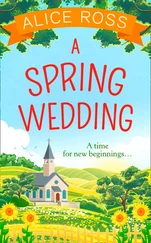Jenny pulled her cream – slightly bobbly – cardigan a shade tighter around the area her waist had once occupied, wishing she’d worn something smarter than it and the black trousers she’d purchased in the M&S sale two years ago, which she could still just about squeeze into. ‘It’s, um, always nice to have new members,’ she blustered, having no idea how she could possibly know that, given that Judith, their last new member, had joined fifteen years ago when she’d reduced her hours at the library.
‘Jenny works at the village school and is our resident Buttersley expert,’ Edward gushed. ‘Knows everyone in the village. And everything about it.’
Jenny shuffled her feet, clad in sensible grey-suede loafers. ‘Well, I wouldn’t go that –’
‘Anything you want to know about Buttersley, just ask Jenny,’ cut in Mona.
The newcomer fixed Jenny with a disconcerting gaze. ‘I might just do that,’ he replied, as Jenny’s face flushed the same colour as the crysanths she’d bought earlier.
Chapter Five
Rich couldn’t wait to escape the house that morning. Alison had worked herself into a lather about Bethany’s costume for yet another of the school’s – far-too-frequent, in Rich’s opinion – dressing-up days. “Something from the garden” this time. Did Rich have any ideas?
No, he bloody didn’t. At least not, apparently, any decent ones. His suggestions of a worm, cabbage or shed had been instantly rejected by the household’s female contingent.
‘I suppose I’ll have to think of something, as usual,’ Alison huffed.
Rich didn’t know why she huffed. Alison’s abundant creative streak never ceased to amaze him. When all the other kids turned up as Robin Hood or Harry Potter for World Book Day, Alison dressed Bethany as an encyclopaedia – complete with pull-out reference section. And when they failed to find any decent modern art to brighten the walls of their new Buttersley home, Alison, despite never having previously brandished a paintbrush, effortlessly produced an impressive set of abstracts.
In fact, Rich couldn’t think of anything Alison didn’t excel at. Despite his pride in his wife, though, her unfailing competence sometimes made him feel more than a little inadequate. Perhaps that was why, he pondered, as he drove his BMW along the country lanes to work, he hadn’t yet mentioned Candi to her. To do so would be admitting he’d cocked up. Literally! Got a transient teenage girlfriend he hadn’t even liked that much up the duff. And his wavering confidence was not helped by Bernice’s evidently low opinion of him. She hadn’t even bothered to tell him about the pregnancy; hadn’t wanted him to play any part in their child’s life, preferring to bring up Candi alone than accept any support he might have offered.
Of course, Rich knew that any passive observer would immediately categorise him as the archetypal wide boy: a ducker-and-diver; a stereotypical salesman. Precisely the image he set out to portray many years ago. And it had worked. Whatever product he’d been tasked with, he’d never once failed to exceed his targets; never once witnessed his name anything other than top of the leader board; never settled for anything other than first prize in incentive competitions. But Rich’s true personality lay a million miles from the cocky salesman. Contrary to the confident persona that greeted the world every day, Rich never felt good enough, always imagining he should be doing something better with his life, something with more credibility, more class. Something that would make his parents proud …
With only thirteen months between Rich and his older sister, Hilary, the two of them had been close as children. Apart from the rare, inescapable sibling spat over something ridiculously trivial, on the whole they played well together, shared without demur, and formed an impenetrable wall of solidarity when faced with unsavoury issues like eating vegetables or having their hair washed. One day, during the school summer holidays, their mother whisked them along to a ‘Musical Taster Day’ at the local theatre. Five-year-old Rich put up a fierce fight, making his preference for a morning at the swimming pool crystal-clear. But once at the theatre, he’d loved it. It seemed like every instrument ever invented had been available for the children to trial. And Rich trialled them all – bonging the bongos, blasting the bassoon and hammering the harp. Hilary, meanwhile, made an immediate beeline for the piano. And there she remained for the entire three hours, various members of staff hovering about her, their mother’s face growing increasingly pink.
‘Oh, Harry, you’ll never guess what’s happened,’ their by now scarlet parent had gushed to their father the moment they arrived home. ‘Hilary apparently has “a very strong aptitude” for the piano. That’s what they said, Harry, “a very strong aptitude”.’
Their bemused father stroked his beard. ‘Hmm. So what does that mean, exactly?’
Their mother tutted. ‘It means, Harry, that we have to buy a piano. Forthwith.’
“Forthwith”, in this instance, meant the following week. The toys in the tiny room that had constituted the children’s playroom were boxed up and shipped off to the charity shop, a second-hand, upright piano wedged into the freed-up space.
Next came the piano teacher – the formidable Miss Rundfahrt– or Bumfart, as Rich called her. A scary German lady with a helmet of slick black hair that looked as if it had been painted onto her bulbous head.
Shortly after these new arrivals, all invitations to parties, or other fun and “normal” children’s activities, began to be rejected. Rich ceased to ask why, the standard response being: ‘Hilary has to practise.’
Indeed, it seemed to Rich that all Hilary did was practice – for hour upon hour – preparing for yet another exam, or yet another recital. He scarcely saw his sister any more and, not surprisingly, their once-strong bond began to weaken.
When Hilary sailed through her final exam with a double distinction aged just thirteen, the ante upped still further, the entire dining room being cleared to make room for a grand piano. Mealtimes, the only time they’d sat down together, were reduced to trays on laps in the lounge.
Needless to say, their mother’s pride, ebullient from that fateful Musical Taster Day, had surged with every exam certificate and every glowing review. And their father, whose sole purpose in life had been to appease his wife, meekly followed suit.
As in-depth discussions of music colleges and conservatoires began to dominate every conversation, Rich found himself increasingly estranged from his family.
‘Do you mind if I stay at Si’s tonight?’ he asked one day.
His mother didn’t bother to lift her head from the pile of music she’d been sifting. ‘Whatever you like, darling,’ came the reply, leaving Rich in little doubt that, had he asked if he could have a one-way ticket to Bangkok to join the Ladyboys, the response would have been much the same.
Hilary had subsequently accepted a music scholarship at Oxford – an auspicious start to her glittering career as one of the country’s most prestigious pianists.
Rich, meanwhile, demonstrated none of his sister’s musical prowess. Indeed, demonstrated no prowess of any kind. Until his first Saturday job helping a mate’s uncle with his hardware market stall. The art of persuasion, he soon discovered, was his forte. But no matter how many sales leagues he topped, no matter how many bonuses he received, no matter how many weekends to Barcelona he won, his achievements always seemed tacky compared to those of his sister.
Still, he had – or at least he’d thought he had – moved on; deftly buried these feelings of underachievement under a ton of earth. Until something ignited a fuse that blasted them back to the surface.
Читать дальше












